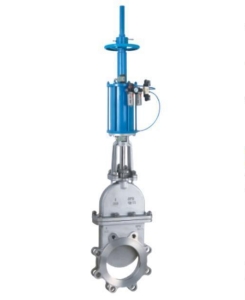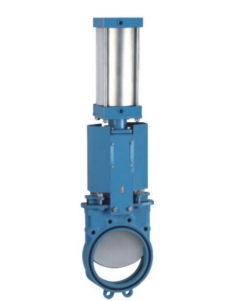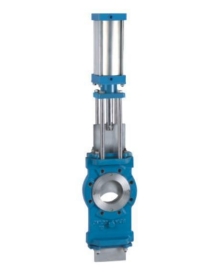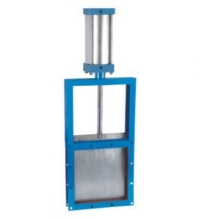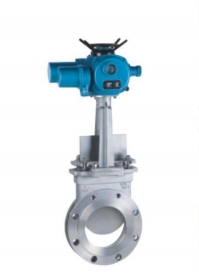
Precision and control are of utmost importance in the complex world of chemical and petrochemical industries. The ability to accurately regulate fluid flow, maintain pressure levels, and ensure safe isolation is vital for efficient and safe operations. Among the various valves utilized in these industries, needle valves stand out for their unique capabilities. With their distinctive design and functionality, needle valves play a crucial role in addressing the specific requirements of these industries.
This blog post explores the exceptional role of needle valves in chemical and petrochemical applications. We will delve into the distinct tasks where needle valves excel and how they enhance process control, accuracy, and safety. So, let’s dive in and discover the significance of needle valves in these industries.
What are Needle Valves?
Needle valves are a type of valve used to control and regulate the flow of fluids with precision. They are named for their needle-like stem, which has a long, fine, and tapered point. The stem is inserted into a conical seat within the valve body, creating a narrow and controlled flow path.
The design of needle valves allows for precise flow control by offering fine adjustments. As the stem is turned, the tapered point either blocks or allows fluid flow through the valve, enabling operators to control the flow rate precisely. This level of control is precious in applications that require accurate dosing, regulating flow rates, or managing pressure levels.
Needle valves are commonly used in industries where precise flow control is crucial, such as oil and gas, chemical and petrochemical, pharmaceutical, laboratory research, and various other applications. They are available in multiple sizes, materials, and pressure ratings to accommodate different industry needs.
In addition, needle valves are often utilized as isolation valves to flow control. When fully closed, the tapered needle point provides a tight seal, preventing any leakage or flow through the valve. This feature allows needle valves for shut-off and isolation, mainly when a reliable and leak-tight closure is essential.
Overall, needle valves offer precise flow control, reliable shut-off capabilities, and the ability to handle various pressures and fluid types. Their unique design and functionality make them valuable in multiple industries where accuracy and control are paramount.
Unique Role of Needle Valve in Chemical and Petrochemical
In the chemical and petrochemical industries, needle valves are well-suited for several unique tasks due to their specific design and capabilities. Here are some of the unique tasks where needle valves excel in these industries:
Fine Metering:
Needle valves are particularly effective in applications requiring precise and fine fluid metering. Their ability to provide highly accurate control over flow rates makes them ideal for tasks where precise dosing or regulation of fluids is essential. Examples include adding small amounts of catalysts or additives to a reaction vessel or controlling the flow of chemicals during laboratory-scale experiments.
Sampling and Analysis:
Needle valves are often used to sample and analyze chemical and petrochemical processes. These valves enable controlled and representative samples of fluids from process lines, ensuring accurate analysis and quality control. They can be used with sampling equipment or connected directly to analytical instruments for fluid sampling.
Purging and Flushing:
Needle valves are employed for purging and flushing operations in chemical and petrochemical systems. When there is a need to remove air or contaminants from a system or line, needle valves can regulate the flow of purge gases or cleaning fluids. This helps ensure the system is appropriately cleaned, purged, or prepared before initiating or changing a process.
Low-Flow Applications:
Needle valves are well-suited for low-flow applications requiring precise control over minimal flow rates. These valves can handle low flow rates with high accuracy, making them valuable in processes that involve taking small volumes or when dealing with highly viscous fluids that require delicate control.
Instrumentation and Control Systems:
Needle valves are vital in instrumentation and control systems within the chemical and petrochemical industries. They regulate the flow of fluids to instruments, sensors, or control devices, enabling precise measurements and control of various process parameters such as temperature, pressure, and flow rate.
Isolation and Shut-Off:
Needle valves are frequently employed as isolation valves for shutting off fluid flow completely. Their design allows for tight sealing when closed, ensuring a reliable and leak-tight closure. In chemical and petrochemical processes, where the containment of hazardous or valuable fluids is paramount, needle valves are crucial in isolating system sections during maintenance, repairs, or emergencies.
It’s important to note that needle valves can be utilized in a wide range of tasks in chemical and petrochemical industries, and their suitability depends on the specific requirements of the process or application.

Keys Factors to Consider in Selecting Needle Valve
1. Application Requirements: Understand the specific needs of your application. Consider factors such as the fluid type (liquid or gas), pressure range, temperature range, flow rate, and any special requirements like corrosiveness or viscosity. This information will guide you in choosing a needle valve compatible with your application.
2. Material Compatibility: Determine the compatibility of the needle valve materials with the fluid being handled. Different fluids may require specific materials to resist corrosion, erosion, or chemical reactions. Common materials for needle valves include stainless steel, brass, carbon steel, and various alloys. Consult chemical compatibility charts or seek expert advice to ensure the valve material suits your application.
3. Pressure Rating: Determine the operating pressure range of your application. Needle valves are typically rated for specific pressure ranges, and selecting a valve with an appropriate pressure rating ensures safe and reliable operation. Ensure the valve chosen can handle the maximum pressure expected in your system without exceeding its specified limits.
4. Flow Capacity: Consider your application’s required flow capacity or flow rate. Needle valves have different Cv (flow coefficient) values that indicate their flow capacity. Ensure the selected valve can provide the necessary flow rate while maintaining the desired level of control and accuracy.
5. Size and Connection Type: Needle valves are available in various sizes and connection types. Consider your system’s pipe size or fitting compatibility and choose a needle valve that matches the required size and connection type (e.g., threaded, compression, or flanged) for easy installation and integration.
6. Control and Adjustment: Evaluate your application’s desired level of control and adjustment. Some needle valves offer fine-tuning capabilities, such as micrometer-style stems or multi-turn operation, allowing precise control over flow rates. Determine the precision and adjustability required to meet your application’s needs.
7. Industry Standards and Certifications: Consider industry standards and certifications, especially for critical applications or regulated industries. To ensure quality, reliability, and safety, look for needle valves that comply with relevant standards, such as API (American Petroleum Institute) or ANSI (American National Standards Institute).
8. Supplier Reputation and Support: Choose a reputable supplier known for providing high-quality products and reliable customer support. Consider factors such as warranty, technical assistance, availability, and after-sales support when selecting a supplier for your needle valve.
By carefully evaluating these factors and matching them to your specific application requirements, you can select the suitable needle valve that provides optimal performance, reliability, and longevity in your chemical and petrochemical processes.


